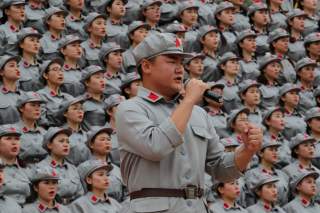No, China's Communist Party Is Not Running on Borrowed Money
The CCP seems deathly afraid of facing up to even a mild recession. But why? It’s not as if the end of the economic party means the end of the Communist Party.
In the Deng era, that would have been dangerous. A disgruntled Party faction could form around a functional or regional nucleus in the army, the heavy industrial complex or certain large provinces. Since the CCP was organized as an alliance of many such local fiefdoms, the Deng model of collective leadership—sharing the newfound wealth of the reform era—was an ingenious solution. Most of the factional leaders of Deng’s China rose from relative poverty to become multimillionaires, if not billionaires. No wonder they acquiesced in Deng’s decentralizing reforms. Inheriting a rich but stagnant economy, with looming aging and pensions crises to boot, Xi has opted to recentralize power. That strategy is likely to work as long as Xi stays healthy and keeps two strong hands on the reins. But what happens when he doesn’t?
Salvatore Babones is an adjunct scholar at the Centre for Independent Studies in Sydney, Australia, and an associate professor at the University of Sydney.
Image; Reuters

